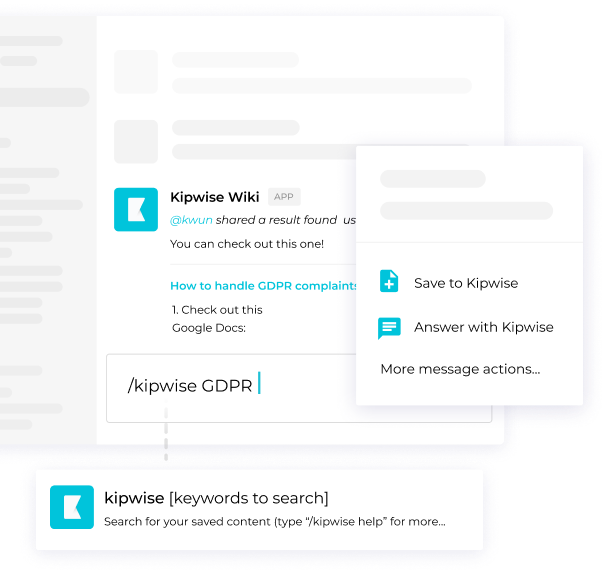The Best Marketing Tools for Startups to Grow Your Business
There are many marketing tools out there that offer a free plan or affordable pricing for small startups. In this article, we will share the best marketing tools for startups in different areas of marketing:
- SEO (Search Engine Optimization)
- Content Marketing
- Social Media
- A/B Testing or Landing Page Optimization
- Live Chat
- Email Marketing
- Outbound Marketing
- Design
- Analytics
#1 SEO Tools for Startups
Search engine optimization takes time and lots of effort, but to make your business visible to your potential customers, it is something that you can’t avoid and it’s always better to start sooner than later.
SEO can be overwhelming as there are lots of areas that you need to work on, including finding the right keywords to rank for, earning backlinks and optimizing your site health to improve ranking, etc. Luckily, even you might not be an SEO expert, there are lots of SEO tools out there that can provide you with useful data and insights to guide your SEO effort.
For examples, SEMrush is a popular SEO tool that offers powerful features to help you in keyword research, backlink analysis, technical site audit, Google Ad optimization and more. Other popular SEO tools among startups include ahrefs and Moz.
#2 Content Marketing Tools for Startups
Other than producing content for SEO purpose, investing in content marketing is also important for startups because it helps to build your credibility in the domain area that your startup is focusing on.
By producing high quality content that your target audience are interested in, it does not only help to attract quality traffic to your website, it can also build trust and educate your potential buyers and eventually turning them into leads and customers.
Producing quality content is a time-consuming task, and lots of startups might not have the resources to do it in a consistent manner. While hiring freelanced writers could be a way, there are services out there like Contentfly that offers a subscription-based model at an affordable pricing. For example, using Contentfly, you can get 4 blog posts at 1,000 words each at just $250 per month.
Wondering what CMS (Content Marketing System) to use for your content? Some popular SEO-friendly choices among startups include Webflow and WordPress.
#3 Social Media Tools for Startups
After producing your content, distributing your content is also an important part and here’s where social media plays a key role. As it’s very likely that you would need to share content to multiple social media platforms, using social media tools can often save you a lot of time.
For example, using tools like Buffer, you can manage multiple social media accounts in one place and schedule posts to Twitter, Facebook, Instagram, LinkedIn and more in one go. This way, you can schedule your social media sharing ahead of time, say at the beginning of every week, so you don’t have to worry about remembering to share content to social media platform every day and can focus more on other tasks. Similar alternatives include HootSuite.
#4 A/B Testing or Landing Page Optimization for Startups
Driving traffic to your website is just the very beginning of the marketing funnel. To increase the conversion of website visitors to real leads, you often need to do a lot of optimization to your landing pages in order to find the write messagings, design or layout that convert best.
To collect insights and perform A/B testing on your landing pages, you can use tools like Google Optimize (which is free!) and Optimizely.
Look for ways to better plan for your A/B tests? Check out our Marketing A/B Testing Plan Template.
#5 Live Chat Startup Tools
Other than fine-tuning your landing pages, another way to improve conversion is to add a live chat option on your website. This allows your potential customers to ask questions easily when they would like to know more about your product or service.
Many of the live chat tools also support smart configurations so that you can initiate pre-set conversations based on the behavior of the visitor (e.g. asking the visitor if he/she needs more help on pricing or wants to schedule a demo after scrolling the pricing page for a while).
For example, we at Kipwise are currently using Intercom as our live chat tool. Some other popular alternatives include Drift.
#6 Email Marketing Tools for Startups
To nurture your leads or keep customers engaged between purchases, email marketing plays a key role. For examples, you can send newsletter to keep your audience updated about your latest products, events and special offers. And you can also send promotions for customers who haven’t purchased recently.
To manage your email list and build your email campaigns, you can use tools like Mailchimp. Mailchimp offers useful features on reporting and analytics, marketing CRM, email campaigns and content management. Some other alternatives include SendinBlue and Active Campaign.
#7 Outbound Marketing Tools for Startups
Although inbound marketing has become the trend in recent years, to reach out to highly targeted prospects, a lot of companies still rely on outbound marketing a lot.
To help you find the right contacts to target for your outbound marketing outreach, you can use tools like Apollo and hunter.io, which can help you find email addresses and contact information of people that matters for your business.
Then to reach out to your contacts, you can use tools like Yesware and Mixmax to track email open/click rates and send follow up actions automatically.
#8 Design Tools for Marketing Teams in Startups
In a startup, you might not have the resources to hire a dedicated designer for your marketing effort. But don’t worry, there are lots of tools out there that you can use to produce relative professional looking designs even you are not a design expert.
For example, a very popular tool among marketers is Canva. Using its simple drag and drop editor, you can either create a design from scratch or save time by using their large library of templates created by professional designers. It also supports collaboration features so you can work together with your team on the design as well.
If you need a more professional yet easy to use tool, Sketch is another choice that you can consider.
To find beautiful and free stock photos, check out Unsplash and Pexels.
#9 Marketing Analytics Tools for Startups
Instead of relying on your intuition, using marketing analytics tools can help to gather useful insights when planning your marketing strategies.
Other than using free tools like Google Analytics, if you need more advanced tracking, you can consider using tools like Mixpanel that offer much easier-to-read funnel analytics and conversion tracking.
To understand more about user behaviors, you can also add in session recording and heatmap tools like Fullstory and Hotjar to your analytics tool stack. With these tools, you can actually reply visitors sessions to see exactly how they interact with your website to get insights on how to optimize your conversion rates.
#10 Customer Relationship Management (CRM) for Startups
Emails alone can only get you so far when you’re growing a startup in any competitive industry. As you develop customer relationships, you also need a comprehensive system for tracking all those interactions as well as their success. The more you can automate, the better. This is where robust CRM software such as Salesforce or Hubspot can come in extremely handy.
CRM suites come with a range of analytics, reporting, automation, and tracking tools to understand how your customer relationships are evolving. These systems can be complex and difficult to handle on your own, so experts such as iTechArt can help with managing your Salesforce integrations, automation options, and customize them to help your startup succeed.
In doing so, you can focus on mission-critical tasks that will define your startup’s future while your CRM team ensures that the system is tailored to your needs.




